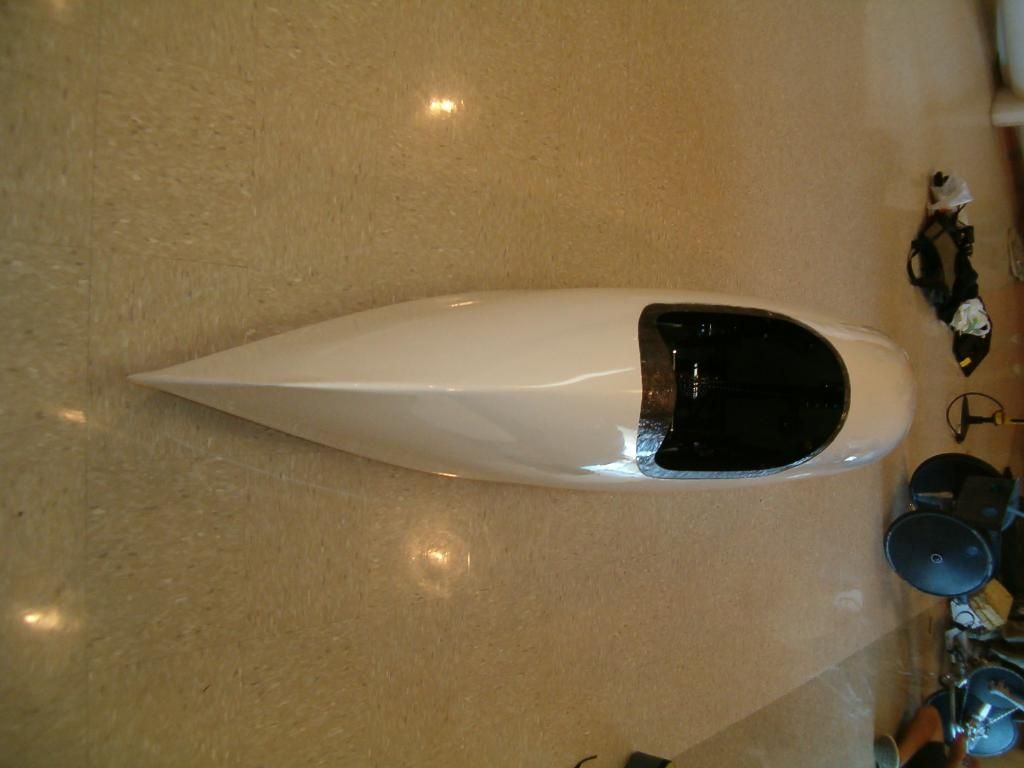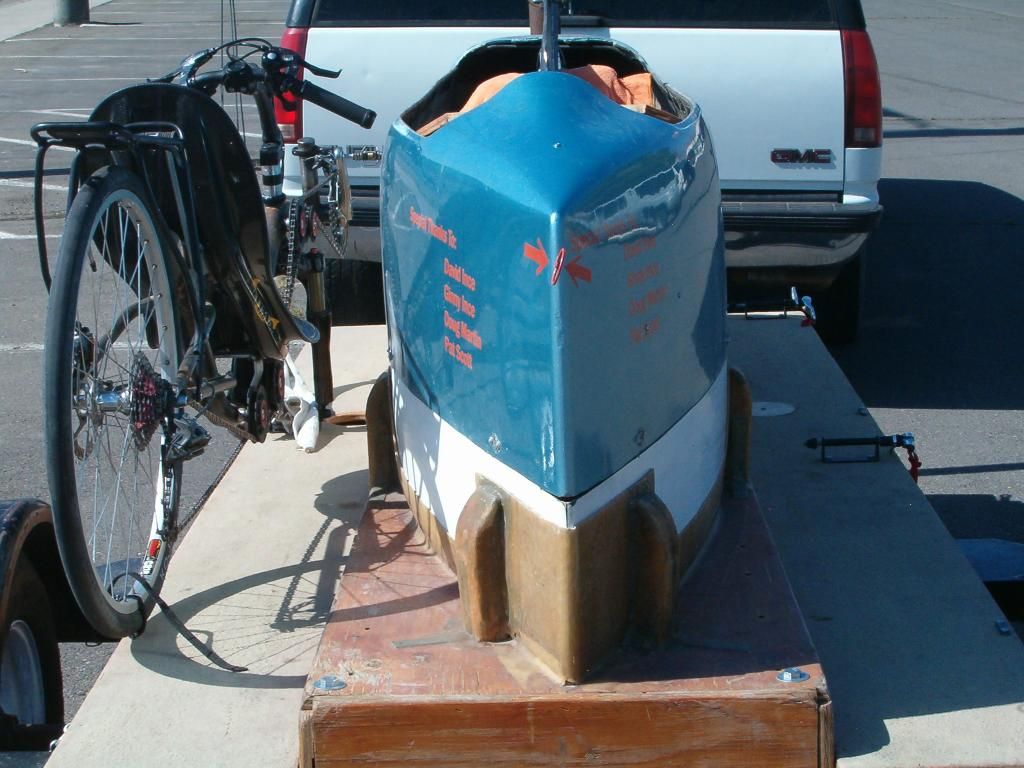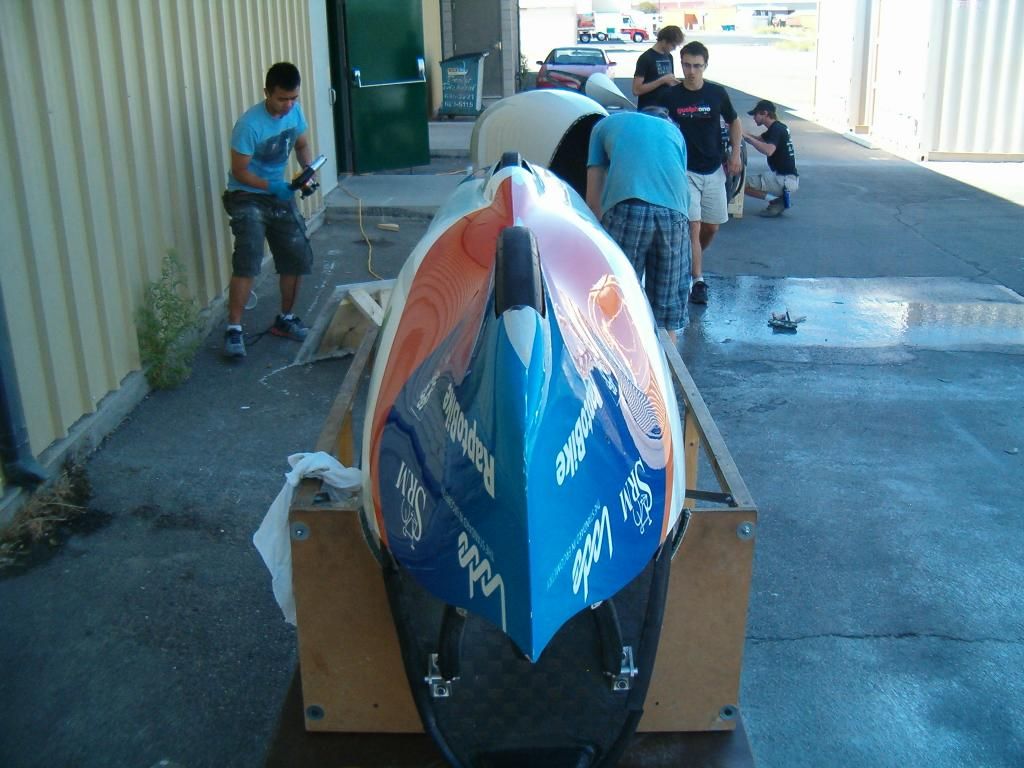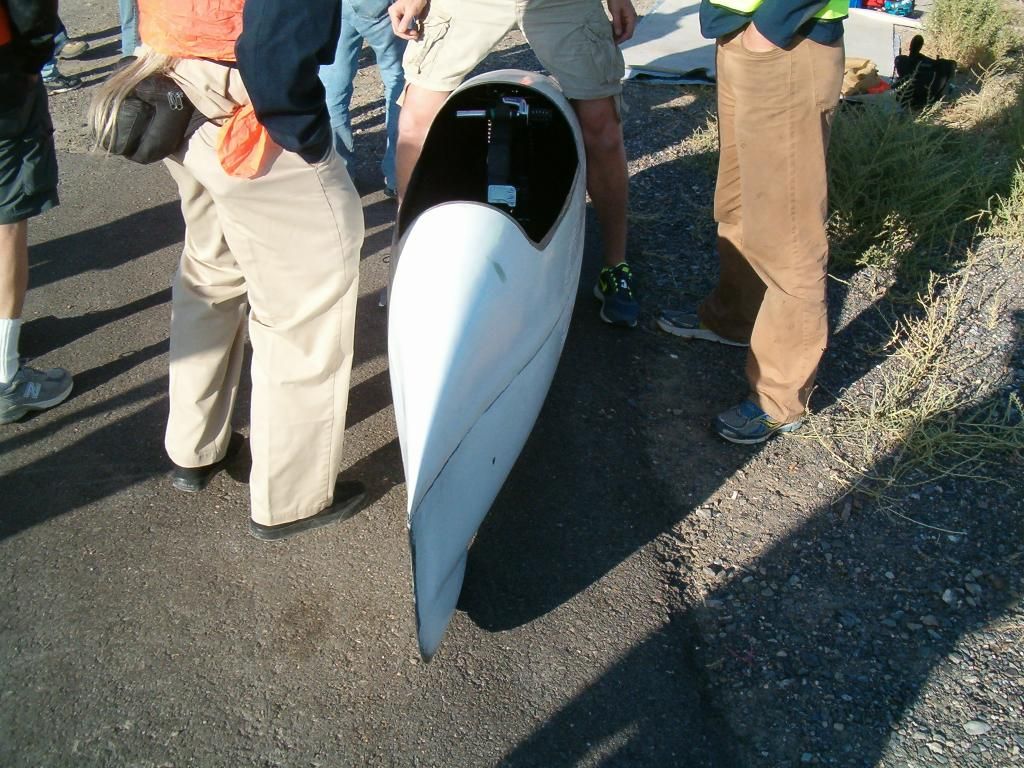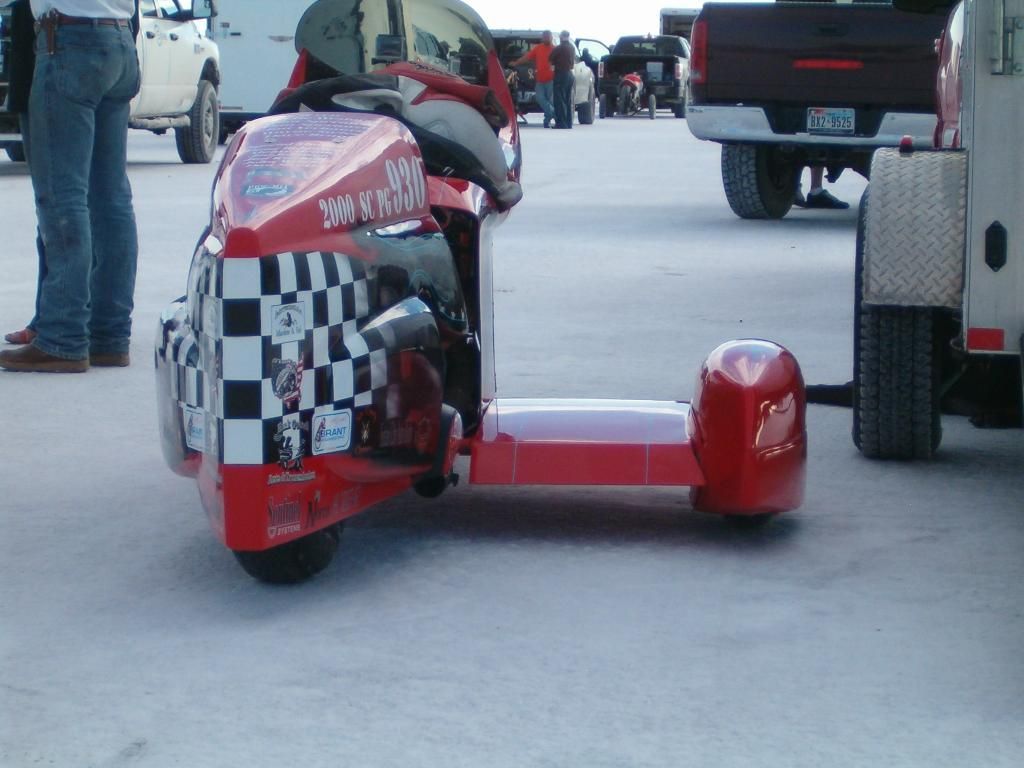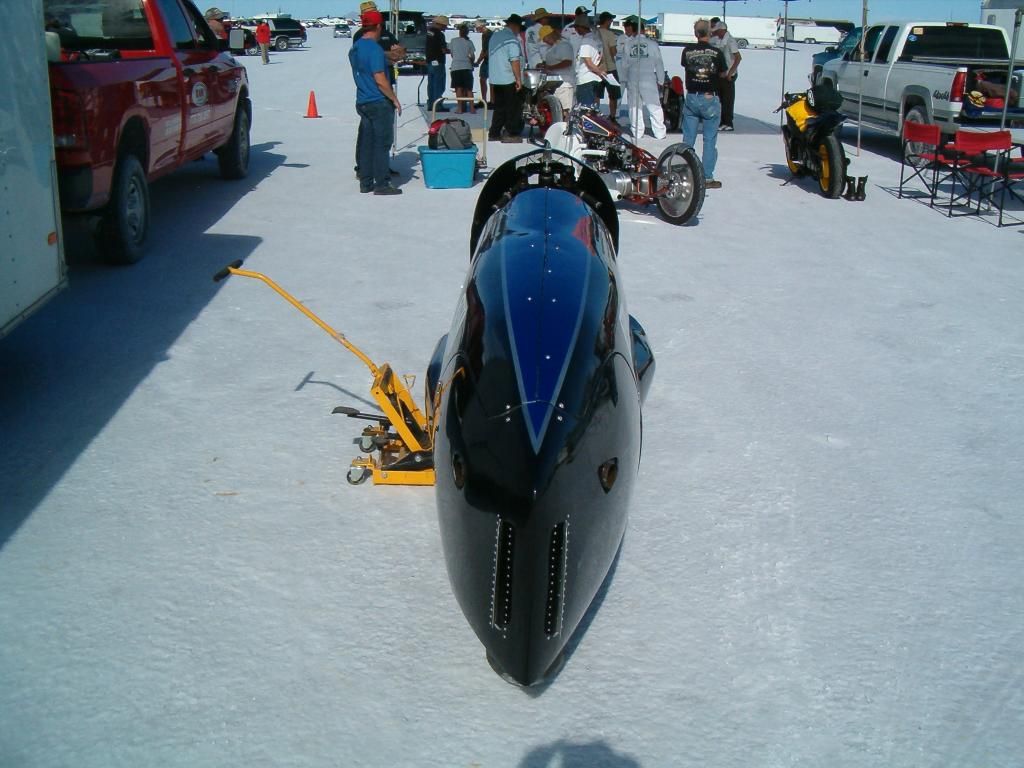Quote:
Originally Posted by PeterS

Here are few photos of a rough model I made today. The sides are flat and the maximum cross section is around mid way but there is no foil. The rear could be narrowed more or even tapered a little without generating lift.
It is quite similar to the Vetter fairing and would have the same frontal area . Could i have some comments on this idea ?


 |
*you're streamlining to reduce pressure drag.
*you must reduce or eliminate separation to do this.
*historically,gentle,progessive plan taper is the only way to accomplish this.
*and this requires a curvilinear pathway.
*a straight curve has too much pressure gain to respect a turbulent boundary layer's needs to mitigate counterflow,eddy initiation,then full-blown turbulence.
*to complicate things,the body upstream of the taper is mutilated due to the cavity for the rider,so the onset flow to the tail is adulterated already.
*boat-tailing requires clean,turbulence-free flow to perform properly.
--------------------------------------------------------------------------
*Since your fairing is a crude,upright wing section it cannot tolerate a Kamm truncation.Chopping it off creates an exponential drag increase.
*for drag reduction the tail needs to be curved to a point,even if it's not to an ideal length.
--------------------------------------------------------------------------
*if you're concerned about crosswind and gust dynamics,it's my opinion that you need to ride with extreme vigilance,and use the body cavity to lean out,using body English to address your immediate riding environment.
here is the minimum drag section (center)

Here you can see how drag is compromised as you leave the ideal contour
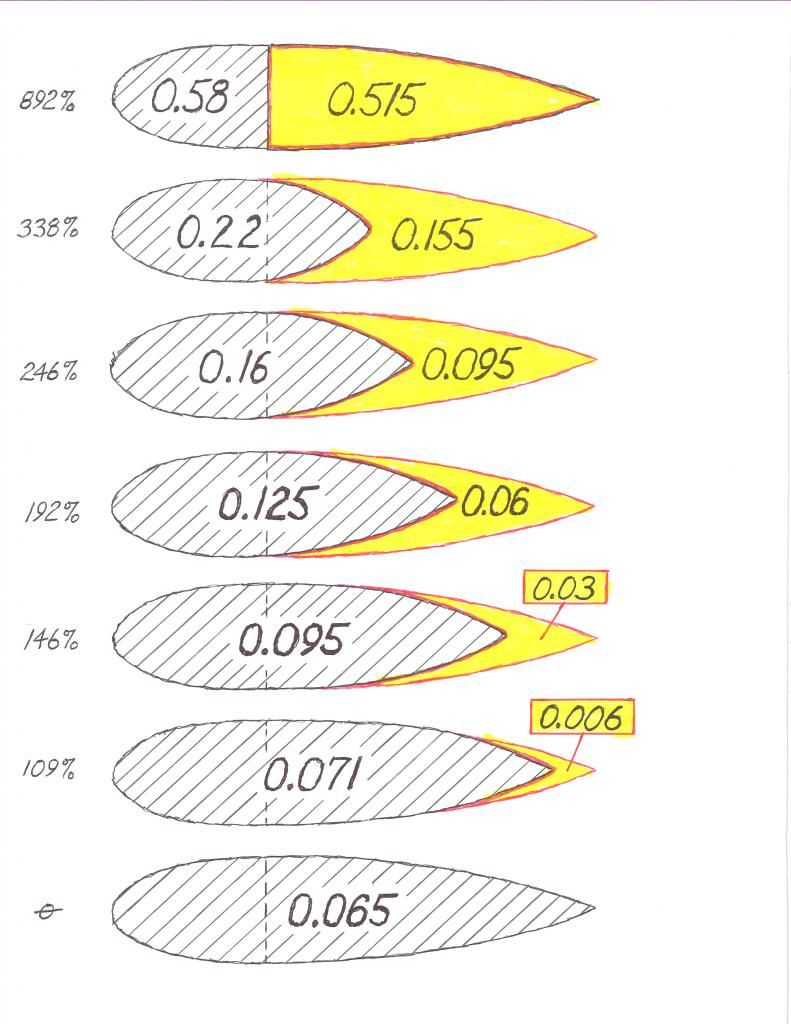
Here is the numerical relationship with which you can predict your drag penalty for truncating the tail
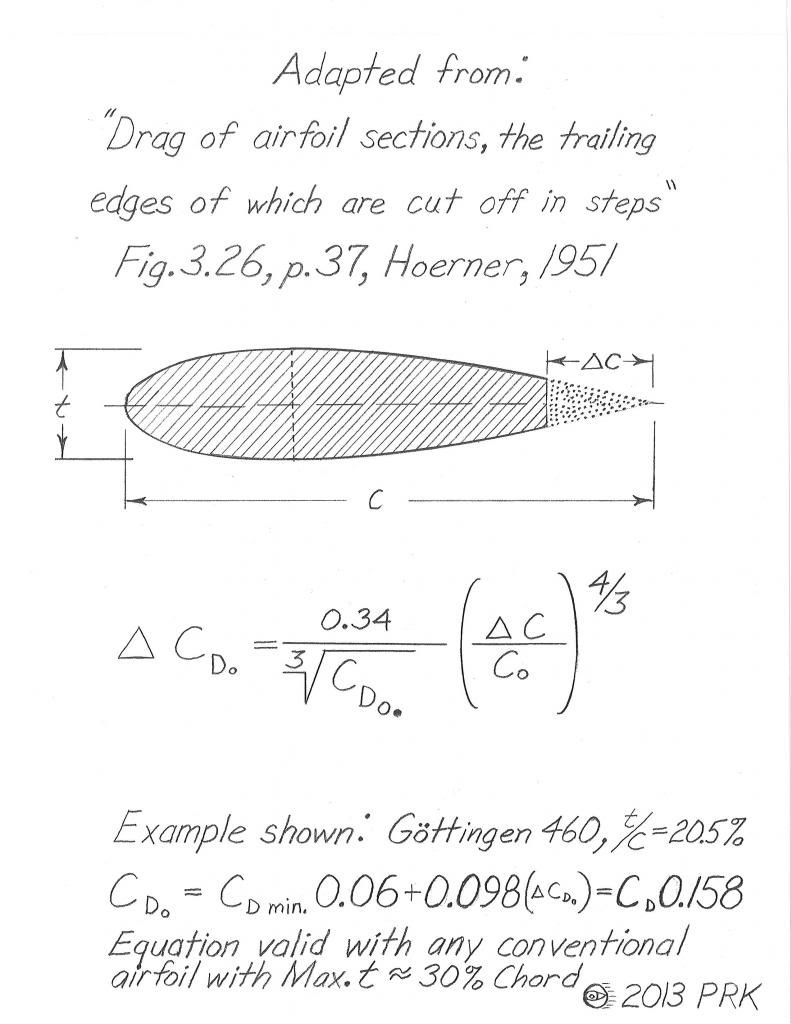
Here are some examples of proper streamlining
